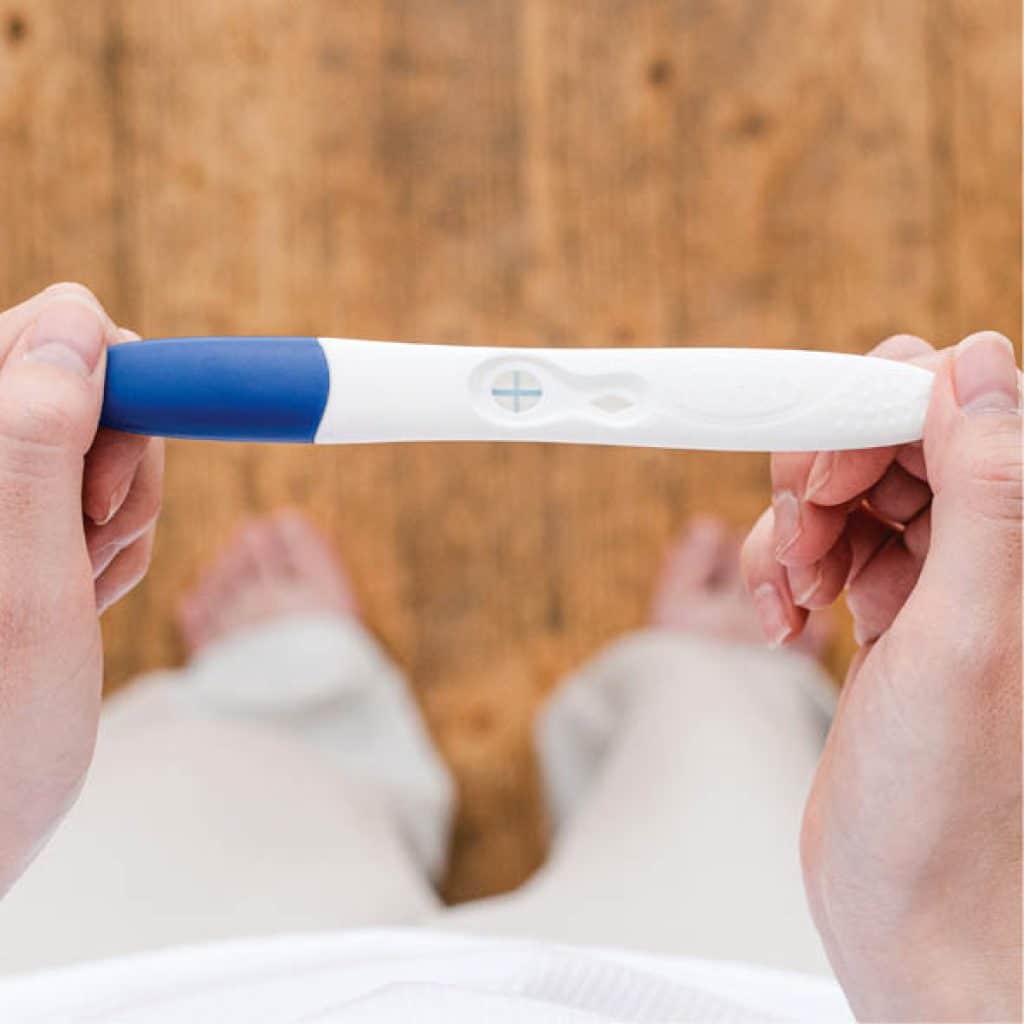
You’ve peed on the stick (or probably several sticks before getting to this point) and are likely to be feeling a mixture of excitement and anxiety about the little life residing inside you. You may also be wondering what will happen when throughout your pregnancy.
On this week’s blog we’re talking about antenatal care and what happens during your appointments with your midwife in the NHS.
8-12 Weeks – Booking in appointment
Your antenatal journey begins with the booking appointment, which usually occurs between weeks 8 and 12 of your pregnancy although it’s advisable to have this appointment as early as possible as some tests, such as screening for sickle cell and thalassaemia, ideally should be done before you’re 10 weeks pregnant.
This first appointment is crucial as it sets the foundation for your care plan. During this visit, your midwife or doctor will gather your full medical history, discuss your lifestyle, and provide essential information about staying healthy during pregnancy.
You should also be given information about what screening tests are available and exactly what involved in them before you make a decision to have any of them.
11 to 14 weeks – Dating scan
Around the 12-week mark, you’ll have a dating scan. This scan confirms your estimated due date and assesses the number of babies you’re carrying. It’s also an opportunity to catch the first glimpse of your baby and hear their heartbeat.
16 Weeks – Midwife appointment
At around 16 weeks, you’ll have a midwife appointment to discuss your health, address any concerns, and ensure you’re receiving appropriate care. This is also a great time to talk about your birth preferences and any questions you might have about the upcoming months. From 16 weeks, you’ll be offered the whooping cough vaccine. The best time to have this vaccine is after your anatomy scan, up to 32 weeks.
18-21 Weeks – Anatomy scan
The 20-week ultrasound, also known as the anatomy scan, is a detailed examination of your baby’s development. This scan checks for any structural abnormalities and provides you with a more in-depth look at your baby’s growth. You can also usually determine the sex of your baby during the scan so make sure you let the sonographer know if you want it to be a surprise!
25 Weeks – Midwife appointment
If this is your first baby, you’ll have another midwife appointment at 25 weeks. This visit focuses on monitoring your health, including checking your blood pressure and testing for gestational diabetes. They’ll also check for protein in your urine and talk to you about monitoring your baby’s movements. Your midwife may also discuss your birth preferences and provide guidance on preparing for labour.
28 Weeks – Midwife appointment
At this appointment your midwife or doctor should use a tape measure to measure the size of your uterus, measure your blood pressure and test your urine for protein, offer more screening tests, offer your first anti-D treatment if you’re rhesus negative as well as discussing how to prepare for your labour and birth. They should also tell you about the vitamin K injection your baby is recommended to have after birth.
31 Weeks – Midwife appointment
You’ll have an appointment at 31 weeks if this is your first baby where your midwife will discuss and record the results of any screening tests from the last appointment. They’ll use a tape measure to measure the size of your uterus, measure your blood pressure and test your urine for protein.
34 Weeks – Midwife appointment
In this appointment your midwife or doctor should give you information about preparing for labour and birth, including how to recognise active labour, ways of coping with pain in labour and go through your birth preferences with you. You’ll also be offered your second Anti-D injection if you are rhesus negative.
36 Weeks – Midwife appointment
In the final weeks of your pregnancy, you’ll have more frequent midwife appointments (usually every 2-3 weeks). These appointments are essential for monitoring your well-being, checking the baby’s position, and helping to prepare you for the upcoming birth.
40 Weeks + Post-term assessment
If your pregnancy continues beyond your due date, your healthcare provider will schedule additional assessments to ensure the well-being of both you and your baby. These assessments may include monitoring the baby’s heart rate and amniotic fluid levels. You may be asked if you would like an induction so it’s a good idea to do your research and ensure you are fully informed before making a decision about whether or not to be induced.
Vaccinations during pregnancy
During your pregnancy, you may be offered vaccinations to protect both you and your baby. The NHS recommends the flu vaccine, which is safe to have at any stage of pregnancy and helps protect against flu-related complications. You’ll also be offered a whooping cough vaccination from around 18 weeks.
Tests during pregnancy
Throughout your antenatal care, you will undergo several tests to monitor your health and the health of your baby.
These tests include:
Blood tests:
These tests check for conditions like anemia and blood group compatibility between you and your baby.
Urine tests:
Urine tests are done to monitor protein and glucose levels, which could indicate conditions like gestational diabetes or pre-eclampsia.
Test for gestational diabetes:
Around 25-28 weeks, you’ll be tested for gestational diabetes. This involves drinking a sugary solution and having your blood sugar levels checked.
Antenatal screening tests
The screening tests offered during pregnancy in England are either ultrasound scans or blood tests, or a combination of both.
Ultrasound scans may detect conditions such as spina bifida.
Blood tests can show whether you have a higher chance of inherited conditions such as sickle cell anaemia and thalassaemia, and whether you have infections like HIV, hepatitis B or syphilis.
Blood tests combined with scans can help find out how likely it is that the baby has Down’s syndrome, Edwards’ syndrome or Patau’s syndrome.
Remember, every pregnancy is unique, and the care you receive will be tailored to your individual needs. So, don’t be afraid to ask questions, take advantage of the resources available to you through the NHS and ensure you are fully informed as you progress throughout your pregnancy.
